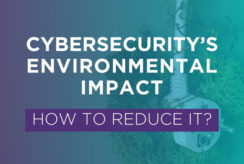CSR, the new grammar of the business world
In recent times, it’s been difficult to name an industry where CSR (Corporate Social Responsibility) has not been a key feature. Regardless of individuals views, sensitivity to the climate and social emergency, this topic is raised all over, from casual chats by the coffee machine to meetings with executive committees, shareholders, during job interviews and annual appraisals, or negotiations with customers and suppliers.
While the concept of CSR has gained widespread attention and acceptance, implementing sustainable transformation poses significant challenges and requires careful consideration. The “sustainability” paradigm has de facto imposed itself as the new grammar of the business world, thanks to the acceleration of awareness, the general tightening of regulations and the progressive transformation of market practices. The path is set, and all ships should be perfectly aligned on an itinerary to a safe and sound destination.
Nevertheless, the reality is far from being that simple and we are seeing executives face common challenges and considerations when it comes to corporate sustainable transformation.
Here’s a guide prepared by our experts to assist you in overcoming these challenges.
10 reasons why sustainable transformation should be approached with humility and caution
CSR has a strong cultural dimension. Sustainable transformation requires us to change the way we look at the world, to rediscover the global economy mechanism, and the countless interdependent relationships that underpin it. It’s important to address global challenges with common frameworks and standards. However, local considerations must be made in order to implement lasting, long-term transformation.
CSR comes with real complexity, requiring us to adopt a ” system ” thinking approach and to deal with complex scientific concepts and objects. Most of us don’t understand the water cycle, the challenges of carbon storage, or the principles of global climate regulation work. There are a lack of educators and facilitators providing the vital interface and dialogue between scientific realities on the one hand, and the gradual appropriation by public opinion on the other hand. CSR requires a significant effort in informing, raising awareness and educating, without oversimplifying the issues or confusing activism with knowledge.
CSR is rising fast against a backdrop of great uncertainty regarding technological evolution, new regulations rules, and even the social acceptability of certain public policies. While “fair transition” is now recognized as a priority by most players, there are still many gaps in the global understanding of it. It is now urgent to project ourselves, to act and to invest, but the uncertainty and associated risks do not make it easy to make decisions.
Today, the expertise of NGOs has increased, and debates are taking place within companies (employee groups, differences of opinion within management bodies, etc.). CSR and the compromises it imposes can create problematic disagreements at the highest levels of organizations and require the invention of new forms of mediation. The need for dialogue and informed debate is real, but it must be based on objective facts, beyond dogmatism and ideology.
CSR requires us to rethink the notion of performance, based on a global and integrated vision. This is key to ensure coherence between financial and non-financial dashboards, and to integrate the impact of the company on its environment, and vice-versa (double materiality). This challenging exercise requires covering all aspects of management and innovating on all fronts to establish the foundations of a new common language (methods, indicators, etc.). Succeeding in all aspects of sustainable transformation is near impossible, however it is crucial to keep moving forward while defining clear priorities.
CSR will increasingly rely on large chains of data. The collection, verification, processing and protection of this data will require growing resources. Should we instrument and measure “in real life”, or rely on theoretical models and simulations? While measuring carbon emissions alone raises considerable challenges, occasionally leading to concerns about a future “Carbon gate”, extending this to other environmental and social indicators will require an unprecedented effort to establish a framework of shared trust. Technological solutions and business models have yet to be invented. The challenge is huge: to meet the growing demand for CSR data and to rely at least partially on artificial intelligence without sacrificing quality and credibility.
CSR is turning into a tool of influence and power, as illustrated by the work being carried out by Europe (EFRAG) and the United States (ISSB), to produce standards that will apply to hundreds of thousands of companies. At the industrial level, CSR data exchanged between suppliers and customers reveal the creation and sharing of value, and therefore naturally become negotiating levers capable of overturning the most established power relationships. While the need for collaboration and mutualization in the field of CSR is undeniable, we must not minimize the balance of power and competitive logic that remain at work.
CSR is not just a “technical” subject: it requires the development of a narrative, an account of a journey and a collective dynamic of continuous improvement. It is not only about publishing a raison d’être, a score, or a label, but about regularly explaining to stakeholders how the organization is genuinely committed to the process of sustainable transformation, and how it is unfolding over the long term, in the specific context of its sector, its market and its history. It is essential to speak out and be proactive in explaining your approach, highlighting the efforts you have made and the results you have achieved, without falling for the trap of “greenwashing”.
CSR requires a major effort. The days of internal competitive examinations, best practice manuals and ” labs ” are over. While testing and experimentation must be relentlessly pursued and the “innovation” component of CSR remains essential, the commitments made by business leaders can only be credibly implemented if the methods for scaling up and deploying solutions are systematically anticipated. This is the only way to achieve a truly sustainable transformation, while facing with courage and lucidity the many operational pitfalls that will inevitably arise along the way.
Finally, CSR requires both internal and external leadership. It is critical that management teams take an increasingly active role in public debate, but also stimulate the emergence of intermediate layers of leadership within organizations, capable of relaying messages and setting the entire group in motion over the long term. Given the scale of the task, the lack of available skills and the ever-increasing exposure of the issues at stake, it can be tempting to wait for a colleague, another department, or another function to step up to the plate. However, it’s urgent to take the initiative to avoid being at the mercy of circumstances, without underestimating the associated risks.
Conclusion
While sustainable transformation is undoubtedly one of the strategic priorities for 2023 and is now part of the everyday life of all managerial functions, it is essential not to underestimate the challenge that its implementation represents.
So, it’s up to us, by knowing how to combine commitment and pragmatism, to articulate the short term and the long term, and above all by being aware of our collective responsibilities. In any case, inaction is not an option, as William Blake reminds us: “He who desires but acts not, breeds pestilence”.





